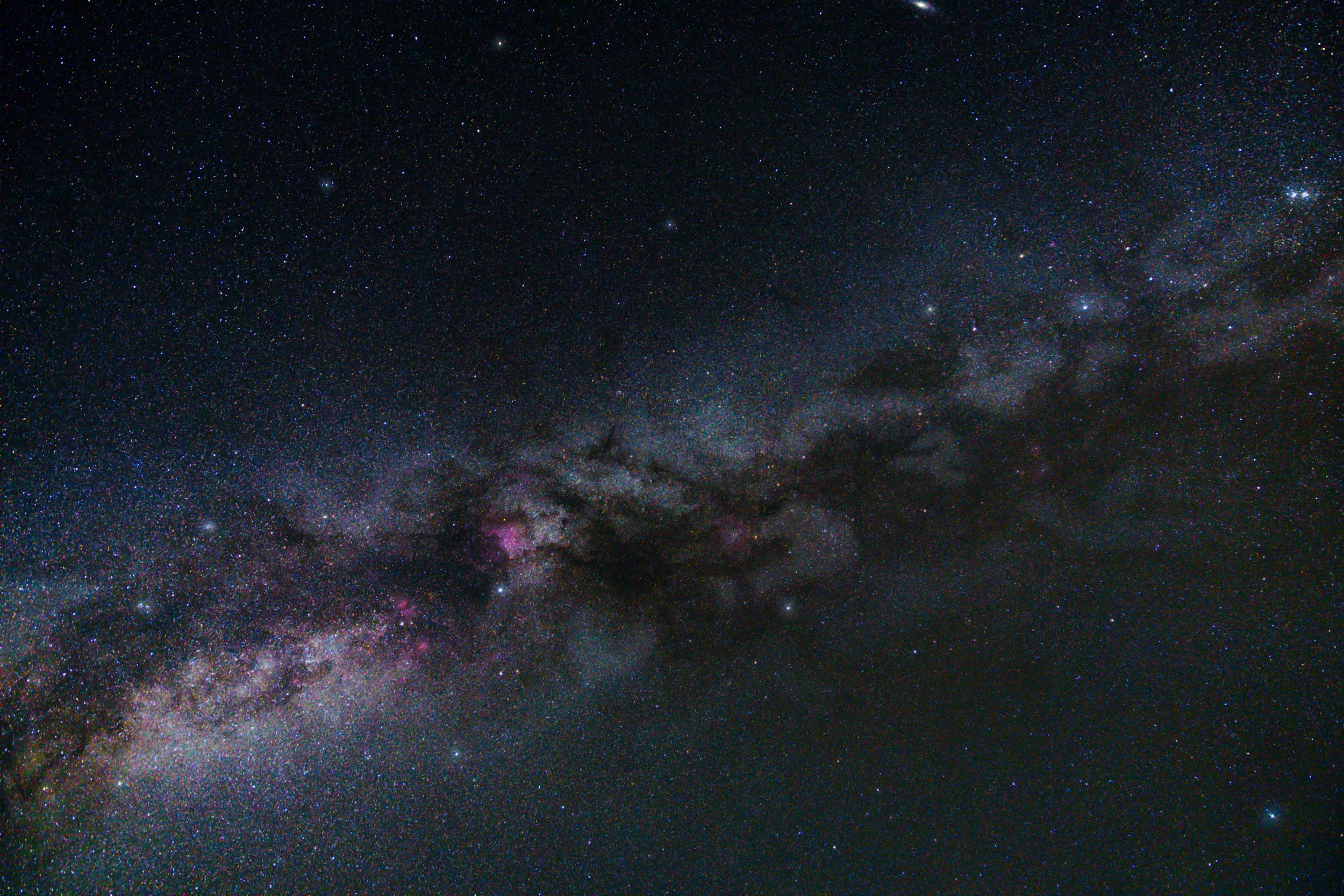
Aerospace Policy
While mastering the intricacies of rocket, CubeSat, and unmanned aerial systems design and construction early in one’s career is vital to cultivating skilled talent in Canada’s aerospace industry, we recognize that real-world challenges demand a broader perspective. Innovating within existing Canadian markets or pioneering new ones requires a comprehensive understanding of legal implications and the ability to navigate regulatory frameworks effectively.
The Aerospace Policy Division at UTAT seeks to engage individuals in or interested in STEM disciplines, empowering them to develop skills that go beyond the technical competencies emphasized in STEM education. Our goal is to nurture holistic problem solvers and changemakers who understand the relationship between policymaking and STEM practice, and how they collaborate to drive innovation and ensure the long-term sustainability of activities in the aerospace industry.
We cultivate well-rounded problem solvers by guiding members to identify policy gaps linked to technological advancements in the aerospace industry and devise strategies to address them through rigorous research, data collection, and analysis. These strategies are shared through research papers and presentations at both international and domestic space and aviation conferences to foster growth within the Canadian and global aerospace industries. In addition to conducting policy-oriented research, interdisciplinary thinking is developed through a deep understanding of the aerospace industry's past, present, and future. We foster this understanding through our communication and outreach initiatives - The Sound of Space (TSOS) podcast and the Learning and Engagement in Aerospace Policy (LEAP) program.
By pioneering the integration of a policy division into a design-focused aerospace team, we aim to set a positive example for the next generation of STEM leaders, driving meaningful change in the Canadian and global aerospace industries. Across our initiatives, we enact values of innovation, excellence, continuous improvement, teamwork, diversity and leadership. Aerospace Policy members gain experience in executing projects with exceptional proficiency while also developing strong research, analytical and critical thinking, public speaking, technical writing, and networking skills.
Organizational Chart for the 2023-2024 Academic Year
Research Areas
In the Aerospace Policy Division, our research initiatives consistently investigate the interplay between aerospace policy and a range of research areas that include:
Sustainability
International Relations
Safety
Security
Technological Innovation
Economics
Current Activities
The Sound of Space (TSOS) Podcast
UTAT Aerospace Policy is proud to present The Sound of Space (TSOS) - a podcast project where we dig deep into the connections between space technology and society. From fun debates about the importance of human presence in space, to exciting conversations about new aerospace developments and interviews with industry professionals - TSOS aims to bring the most exciting and informative local, domestic, global, and interstellar space content directly to our audience’s ears. Check us out on podcast platforms including Spotify, Apple Podcasts, Anchor, and Google Podcasts and make sure to follow us on Instagram @_thesoundofspace!
-
EP. 21 - The Ethical Landscape of Terraforming Technologies
EP. 22 - TSOS Interviews - HERON MK. II -UTAT’S First Satellite Launch
EP. 23 - Interstellar Investments: The Economic Realities of Space
EP. 24 - Tech in Space - Roving the Moon and Mars (Part 1)
EP. 25 - Tech in Space - Roving The Moon and Mars (Part 2)
EP. 26 - Life in Space - Zero-G Fitness
EP. 27 - TSOS Interviews - Voices from Women in Aerospace
EP.28 - Episode 28 is an interview episode featuring students envisioning the future of spaceflight at the 2024 SEDS Canadian Space Conference. Visit our podcast links directly for more information!
EP. 29 - Tech in Space - Rocket History (It’s not rocket science!)
EP. 30: Life in Space - How to beat hunger beyond the atmosphere
Show Notes
-
EP. 21 - The Ethical Landscape of Terraforming Technologies
EP. 22 - TSOS Interviews - HERON Mk. II - UTAT's First Satellite Launch
EP. 23 - Interstellar Investments - The Economic Realities of Space
EP. 24 - Tech in Space - Roving the Moon and Mars (Part 1)
EP. 25 - Tech in Space - Roving the Moon and Mars (Part 2)
EP. 26 - Life in Space - Zero-G Fitness
EP. 27 - TSOS Interviews - Voices from Women in Aerospace
EP.28 - Episode 28 is an interview episode featuring students envisioning the future of spaceflight at the 2024 SEDS Canadian Space Conference. Visit our podcast links directly for more information!
EP. 29 - Tech in Space - Rocket History (it's not rocket science!)
EP. 30: Life in Space - How to beat hunger beyond the atmosphere
-
Episode 11: Life in Space - What Will Happen When Humanity Leaves the Earth?
Episode 12: The Search for Extraterrestrial Life
Episode 13: Tech in Space - James Webb Space Telescope (JWST) One Year Launch Anniversary Deep Dive
Episode 16: Space Exploration Failures and the Lessons We’ve Learned From Them
Episode 19: Tech in Space - A Chronicle of Space Stations (Part I)
Episode 20: Tech in Space - A Chronicle of Space Stations (Part II)
-
Episode 1: Is Space Exploration Worth It?
Episode 2: Life in Space - What Would It Take?
Episode 3: Aerospace Opportunities & The Student Experience
Episode 7: Life in Space - The Effects of Microgravity (with Erin Richardson and Avinash Mukkala)
Episode 9: A Beginner’s Guide to Cosmology & Astronomy - Part I
Episode 10: A Beginner’s Guide to Cosmology & Astronomy - Part II
Resource Lists
Learning and Engagement in Aerospace Policy (LEAP) Program
The Learning and Engagement in Aerospace Policy (LEAP) program serves as a platform aimed at promoting the connection between policy development and engineering, or STEM disciplines as a whole, through a variety of educational events. These endeavours foster an inclusive community and aim to show students that many career trajectories in Canada’s aerospace industry would benefit from a strong knowledge of aerospace policy. This emphasis extends to the impact of policy development on industry growth and improvement (e.g., time and cost savings, increased efficiency, diversification of sector activities, and technological innovation). The program also aims to bolster students' confidence in their preparedness for the aerospace industry, by equipping them with knowledge that prompts them to think from different perspectives and partake in holistic problem-solving. From co-organizing the 2023 NASA Space Apps Challenge hackathon in Toronto to content creating for the 2024 SEDS Canadian Space Conference to hosting informative aerospace masterclasses taught by professionals in the industry, we believe that the sky is not the limit in the personal and professional growth and enthusiasm that the LEAP program can ignite!
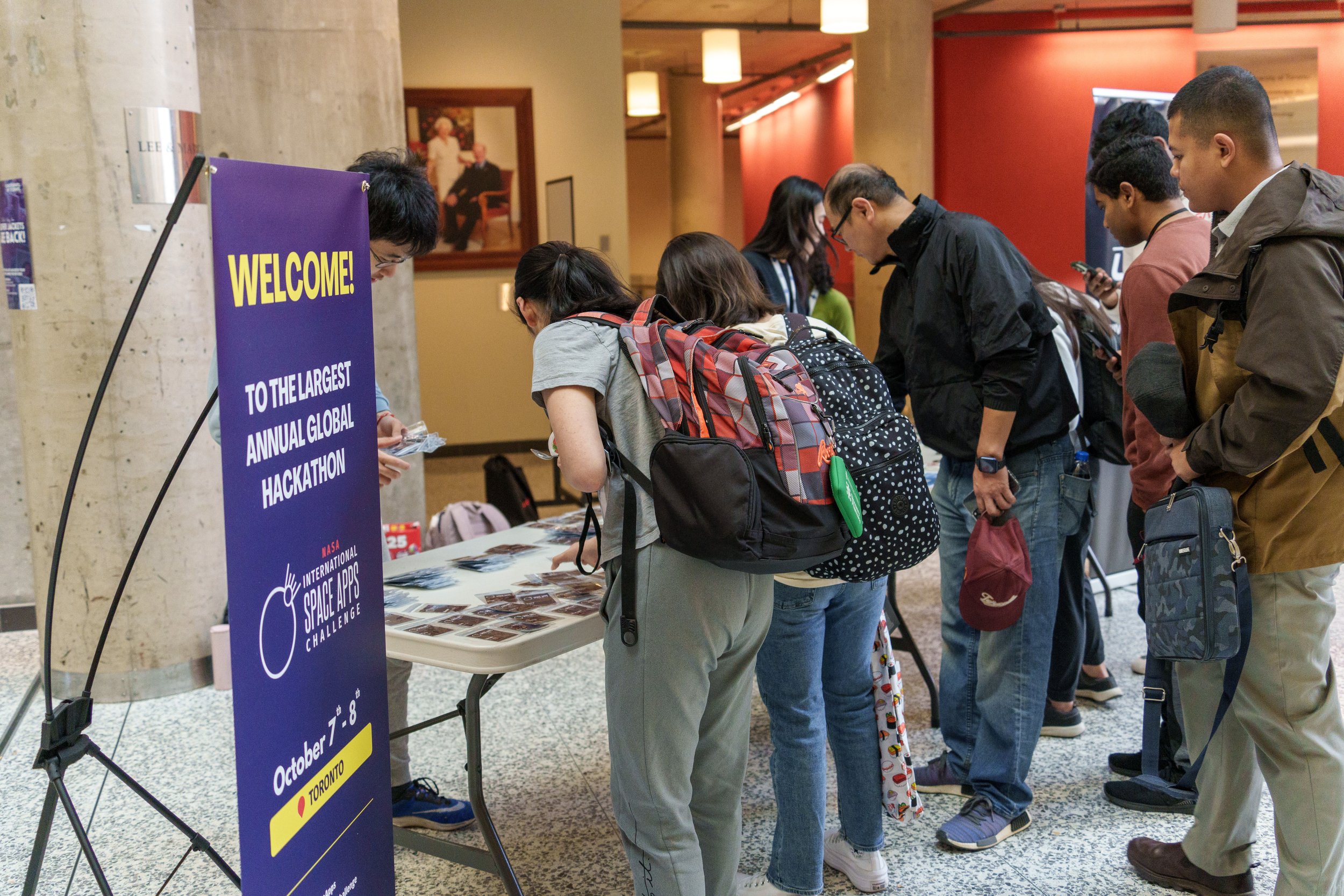

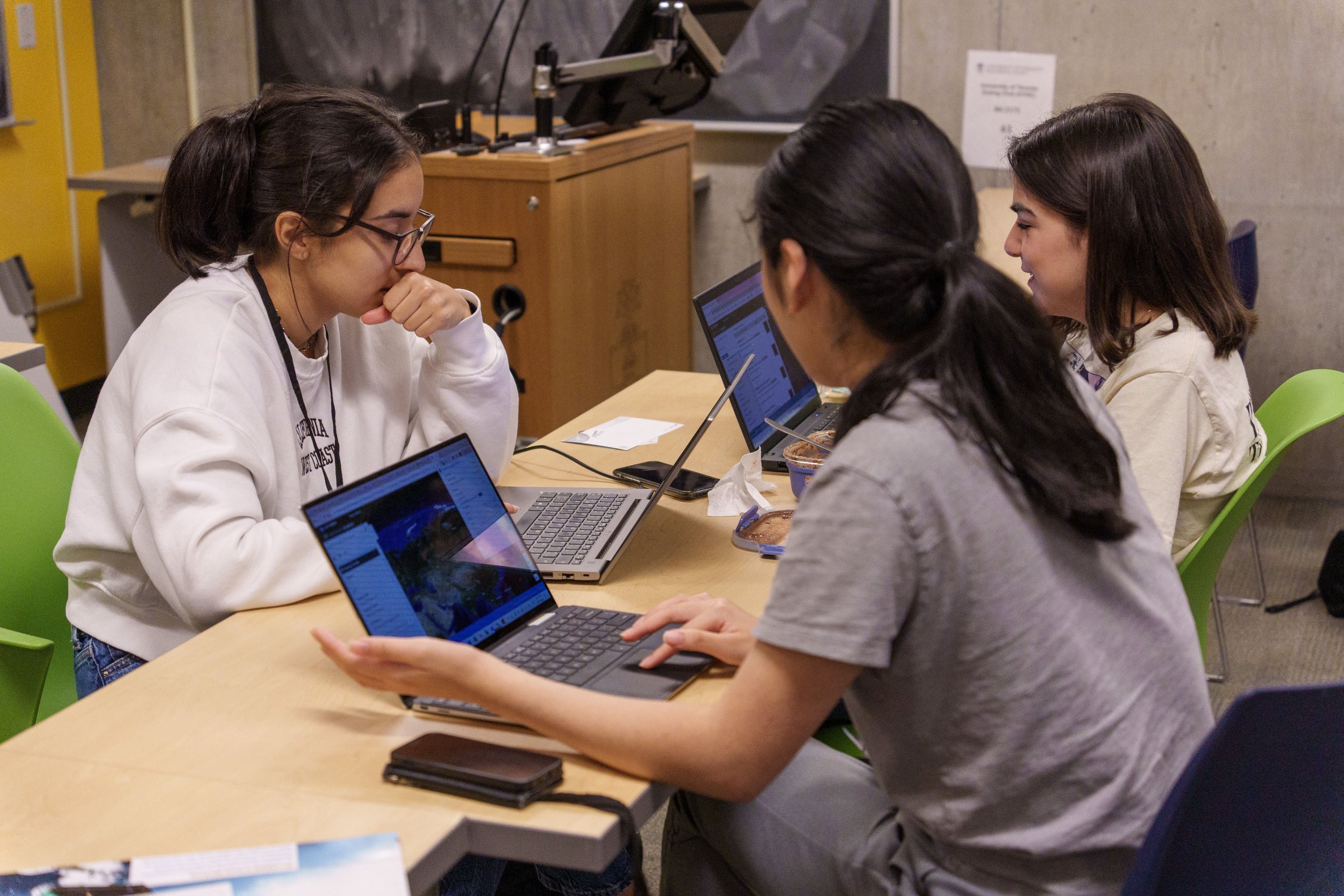
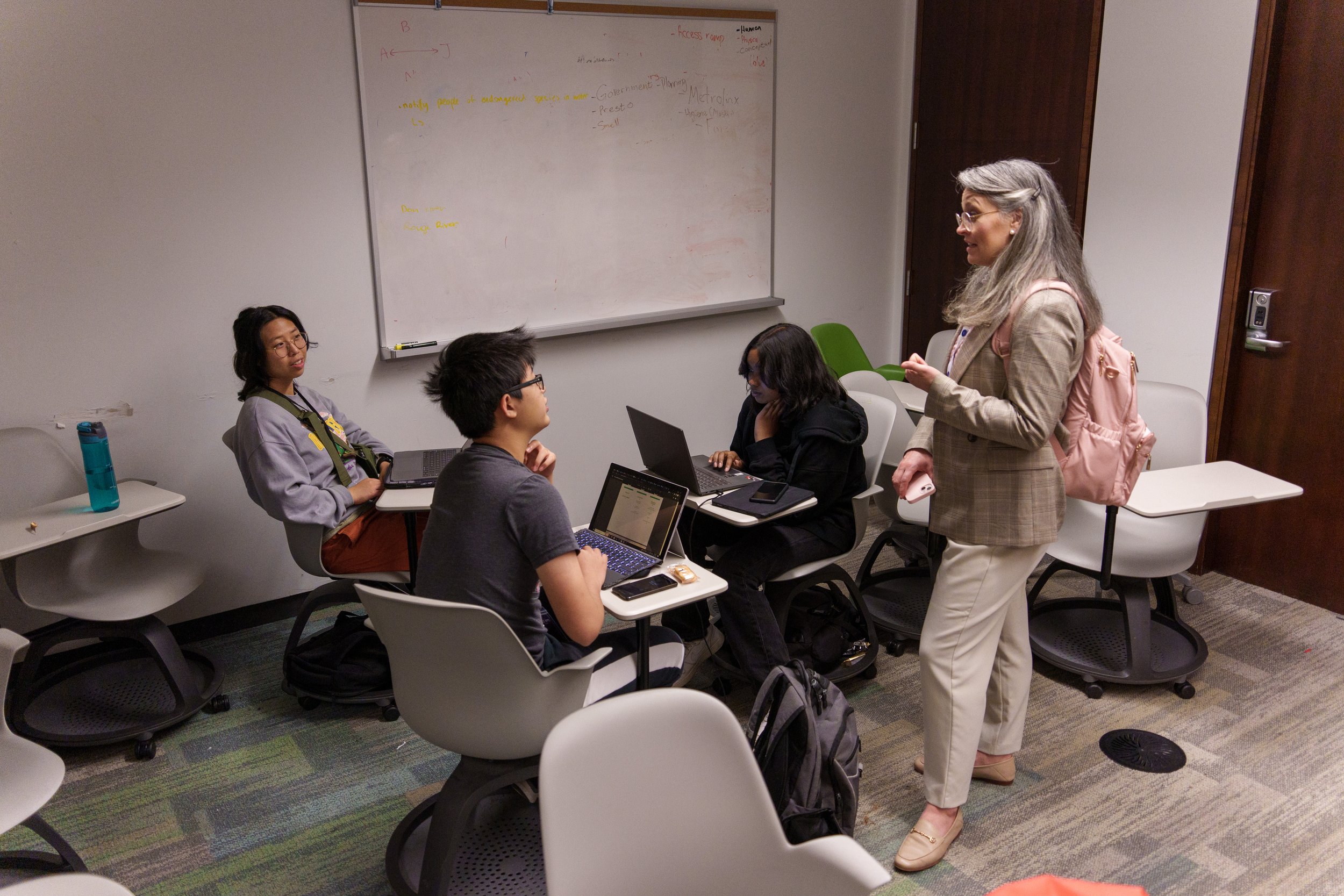
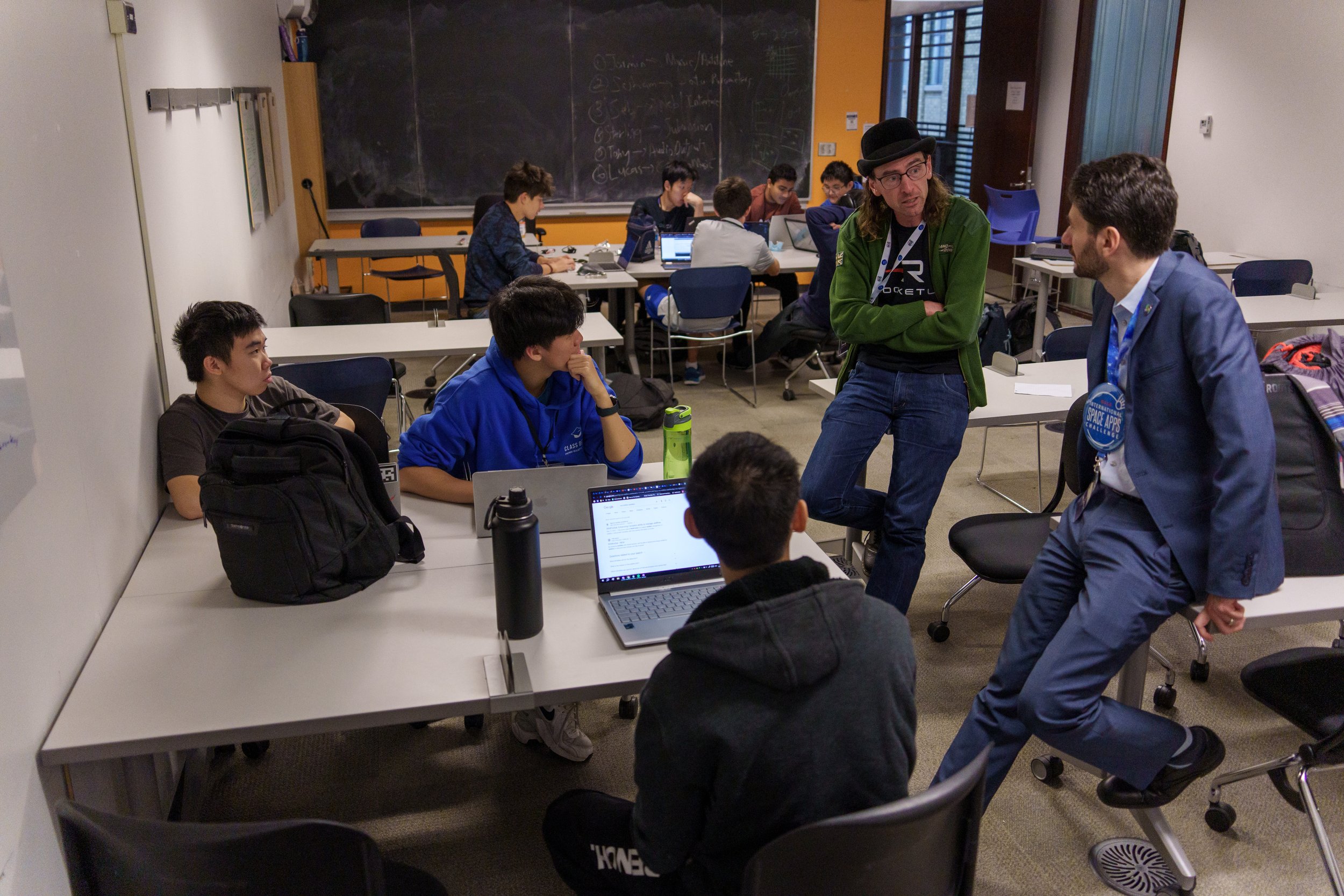
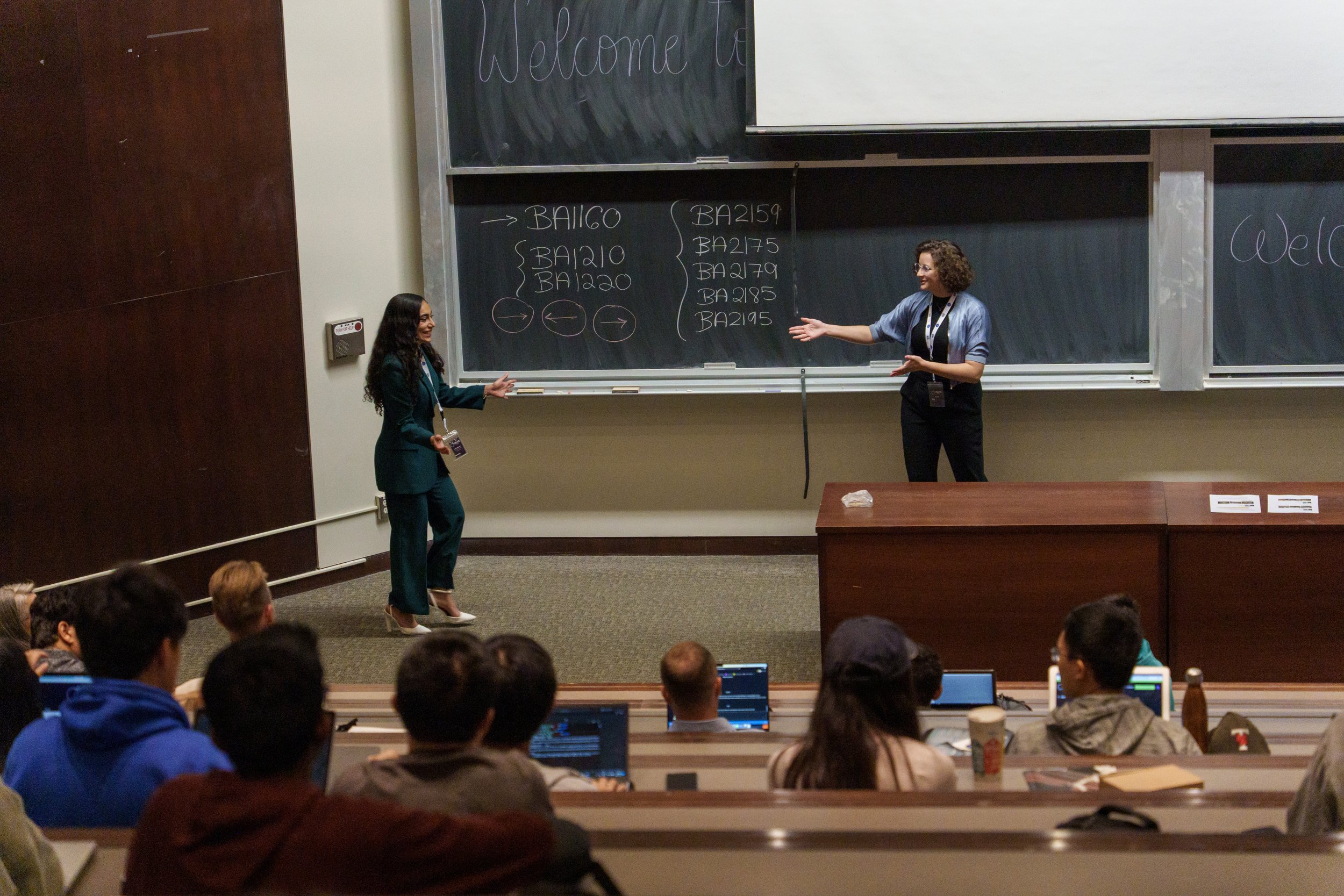
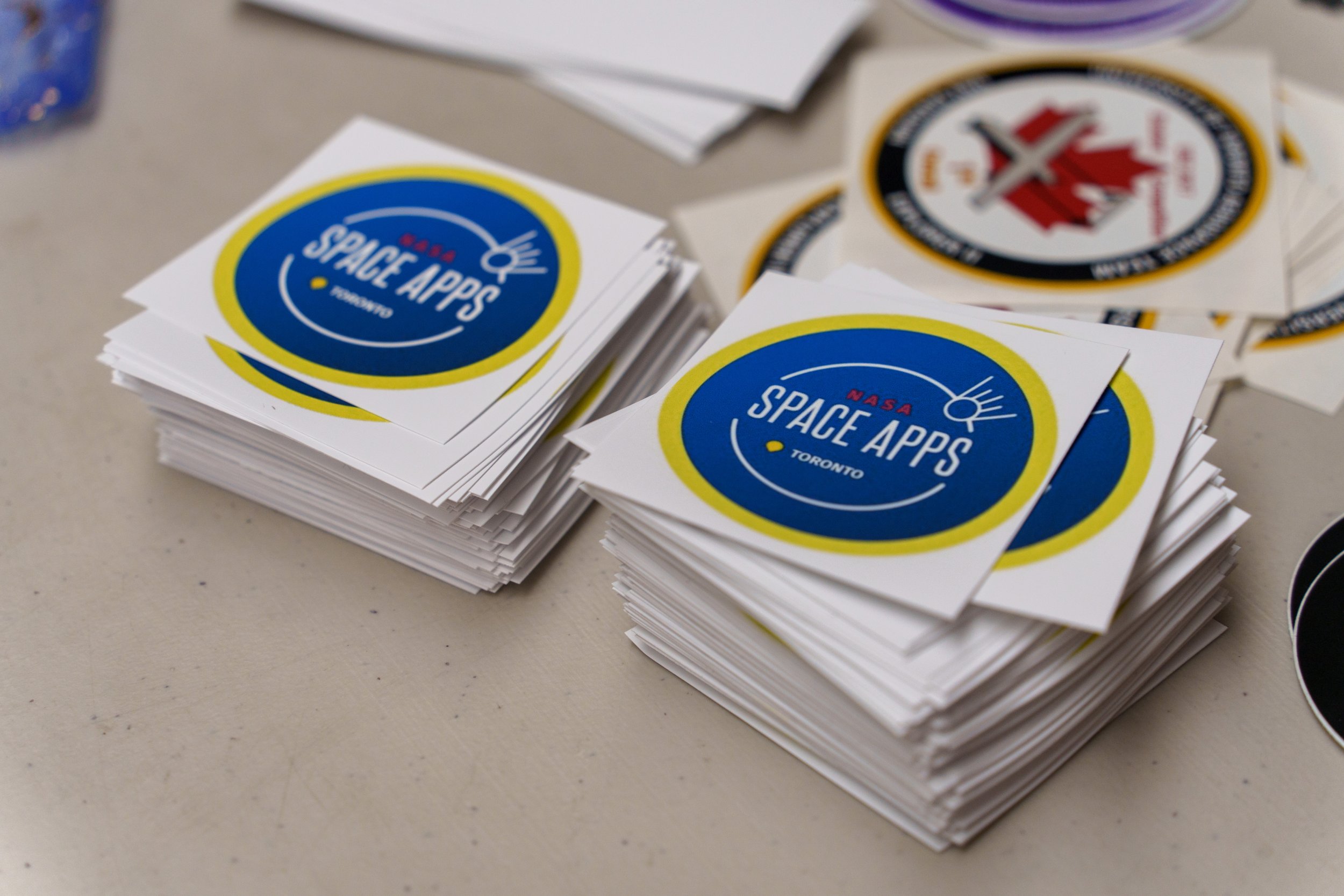
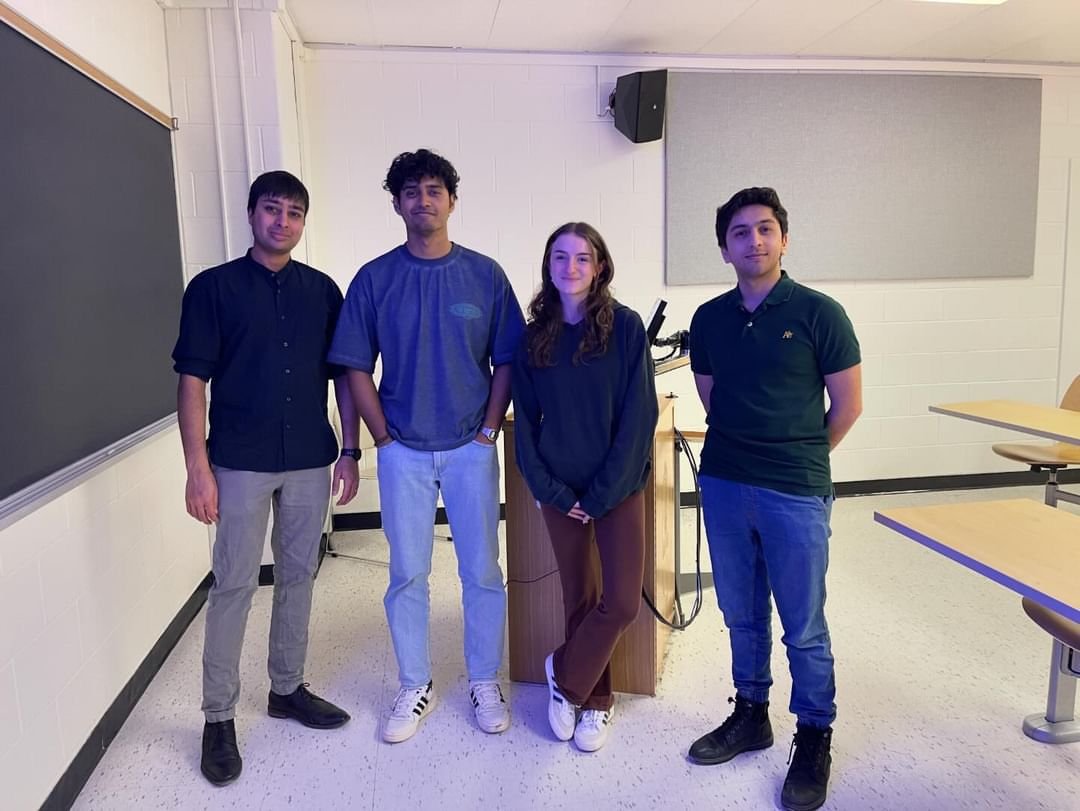

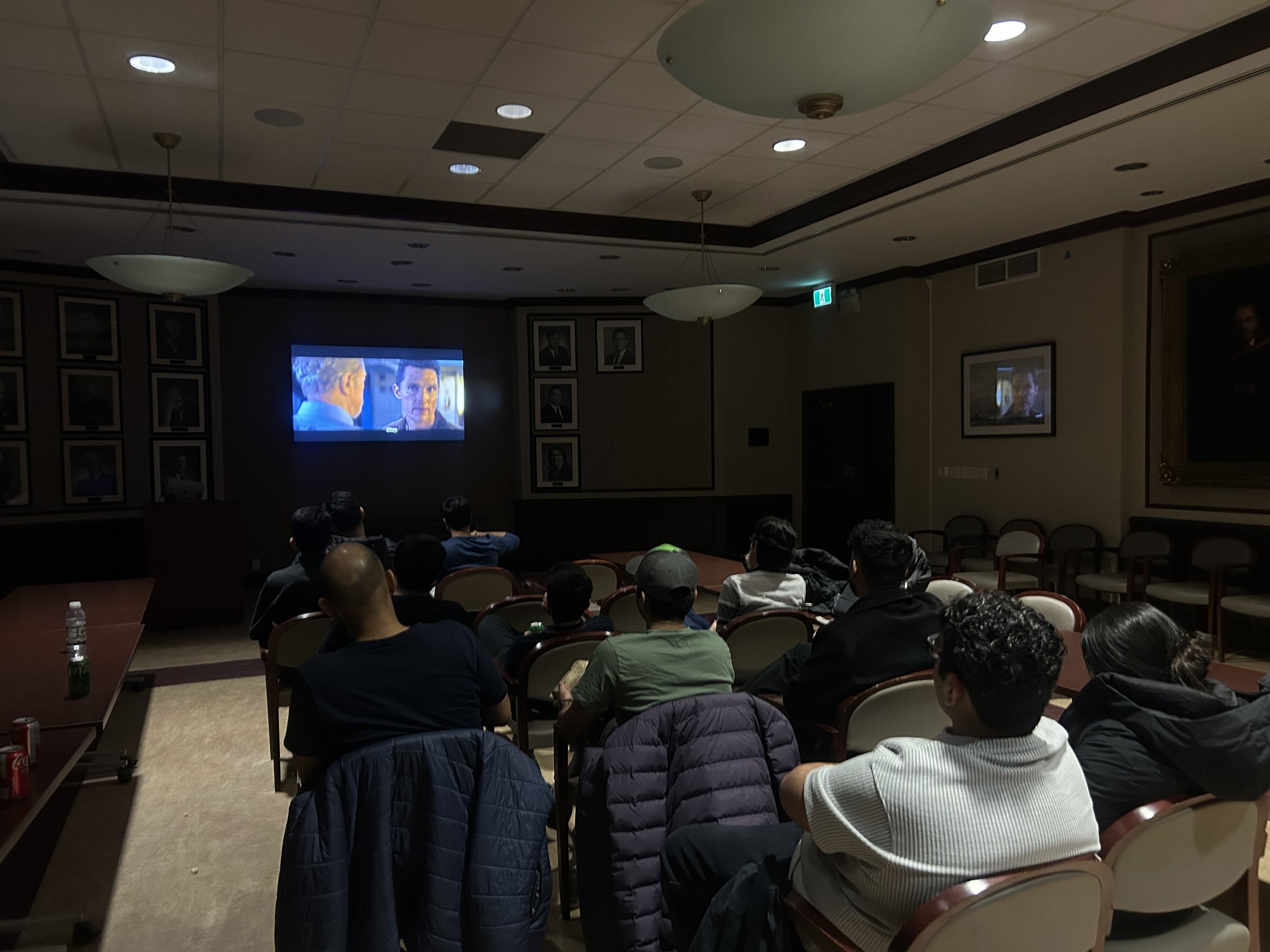
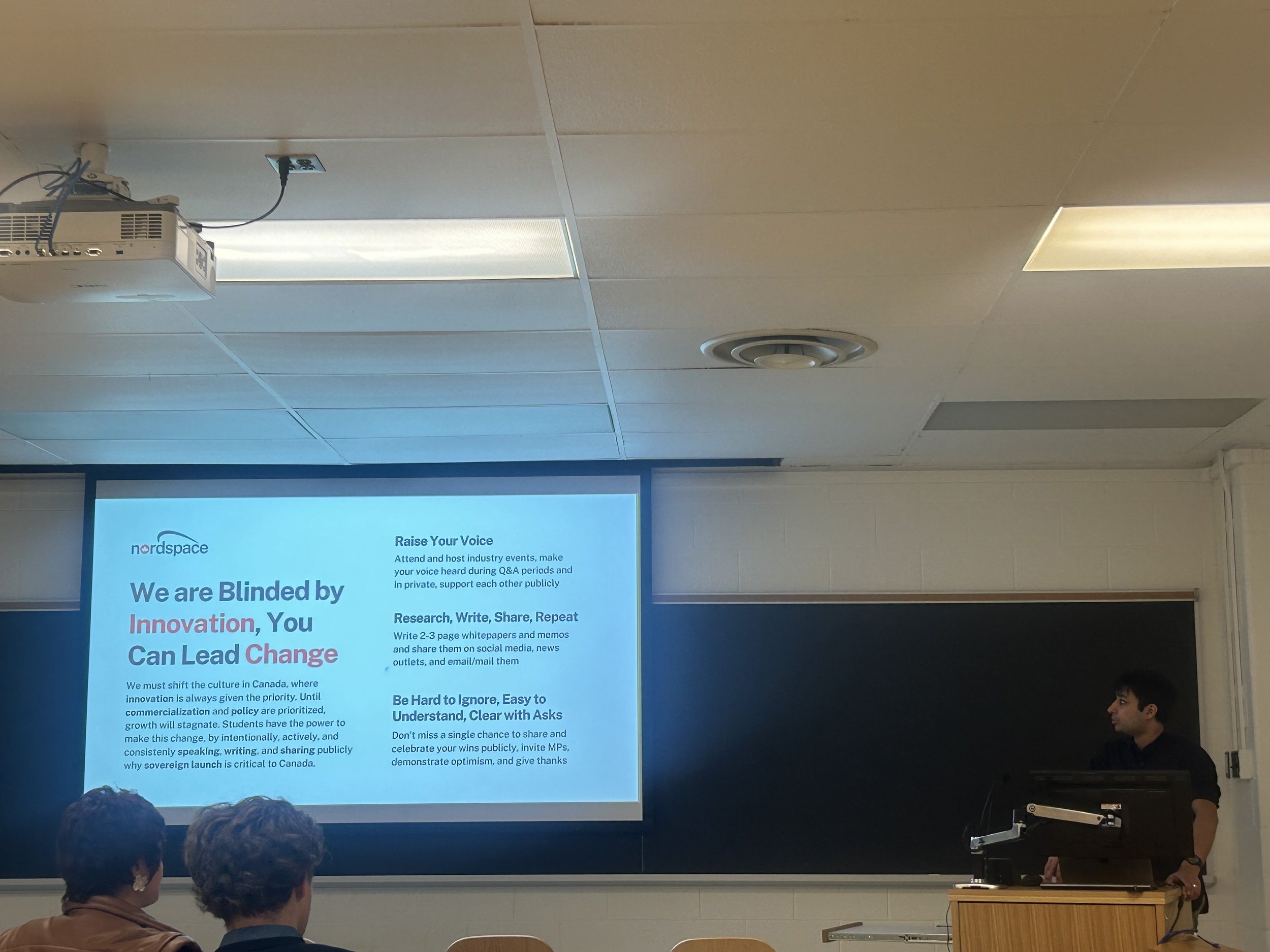
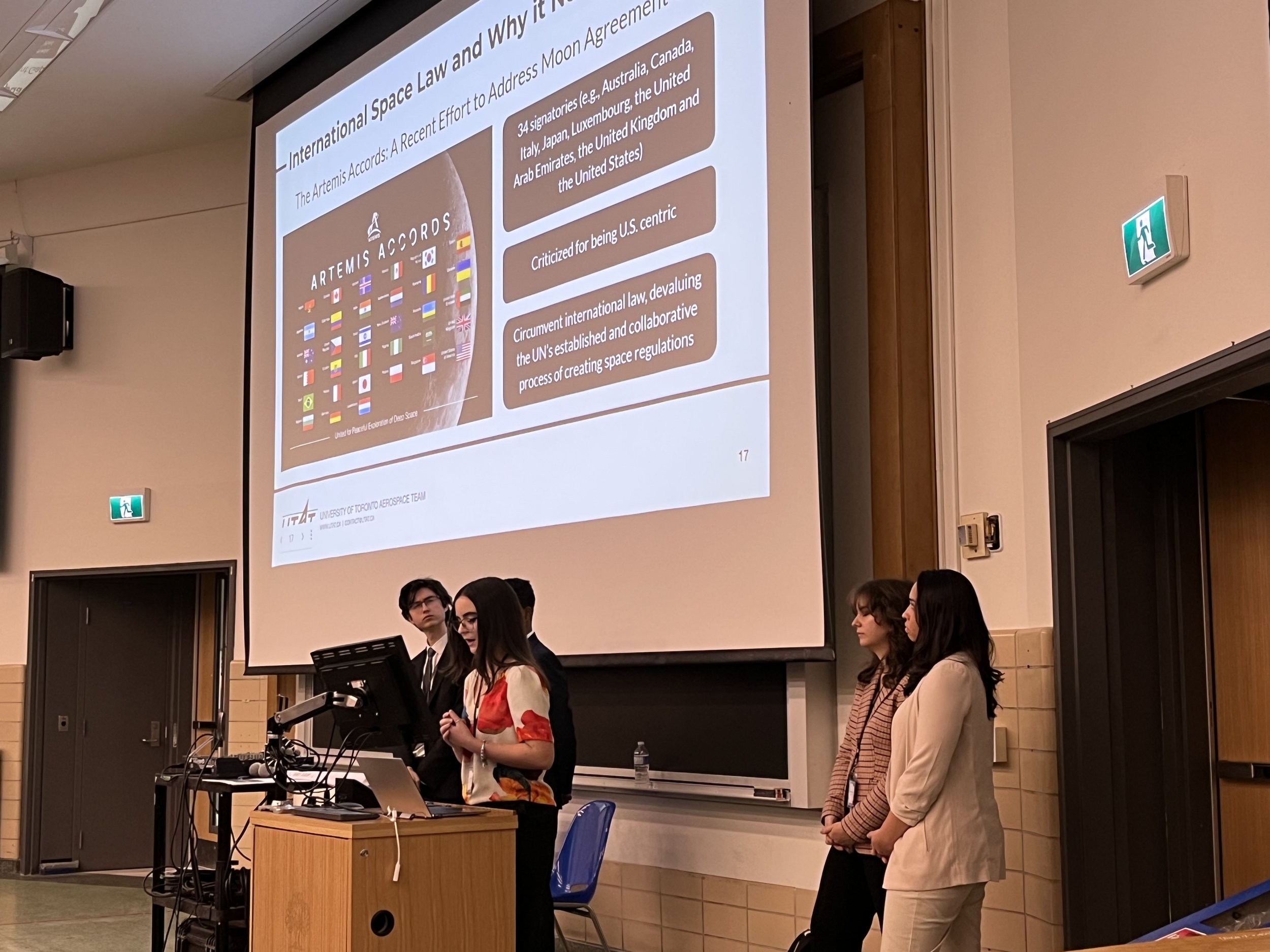
IAC 2023 Participation: Revisiting the Moon Agreement
A group of five undergraduate students presented their research on the Moon Agreement at both the 2023 International Astronautical Congress (IAC) in Baku, Azerbaijan, the largest annual international space conference, and the 2024 SEDS Canadian Space Conference in Toronto, Canada! This research project addresses the following questions:
What do the various stakeholders need for broad consensus in the adoption of a mutually agreeable framework?
What form will this framework take in the international arena?
Through the use of a Grounded Theory-style qualitative meta-analysis, a new regulatory framework was developed based on common trends and notable anomalies that incorporate concepts within corporate, commercial, property, maritime, and international law. The proposed framework aims to preserve the spirit of the original Moon Agreement and related space law while addressing the following causes for non-ratification: compatibility with existing domestic legislation for ease of implementation, reasonable regulation of private actors in the light of commercial interests, and a structure of maximal self-enforcement with respect to the varying benefits and responsibilities of different stakeholders.
Research Areas
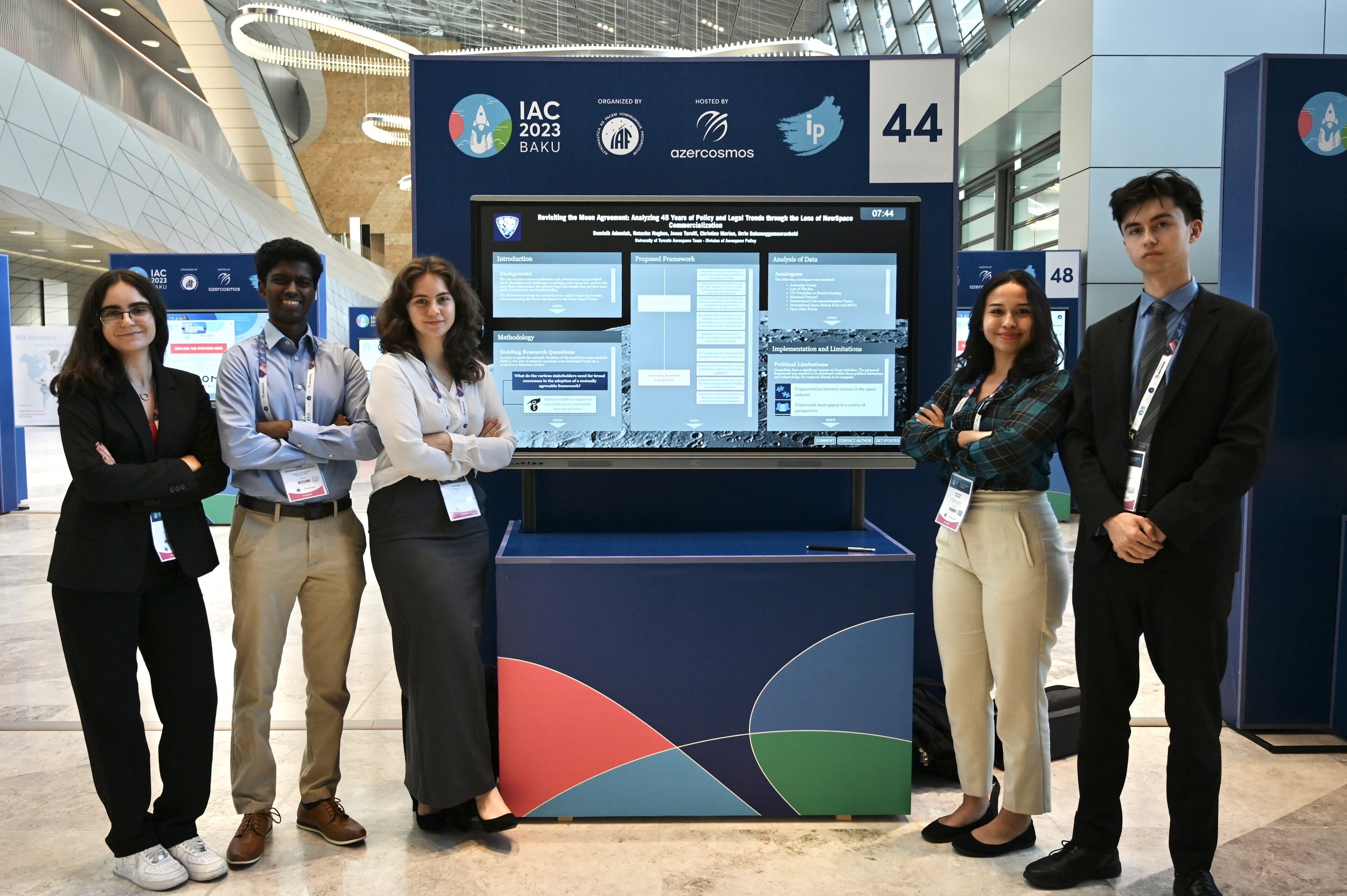
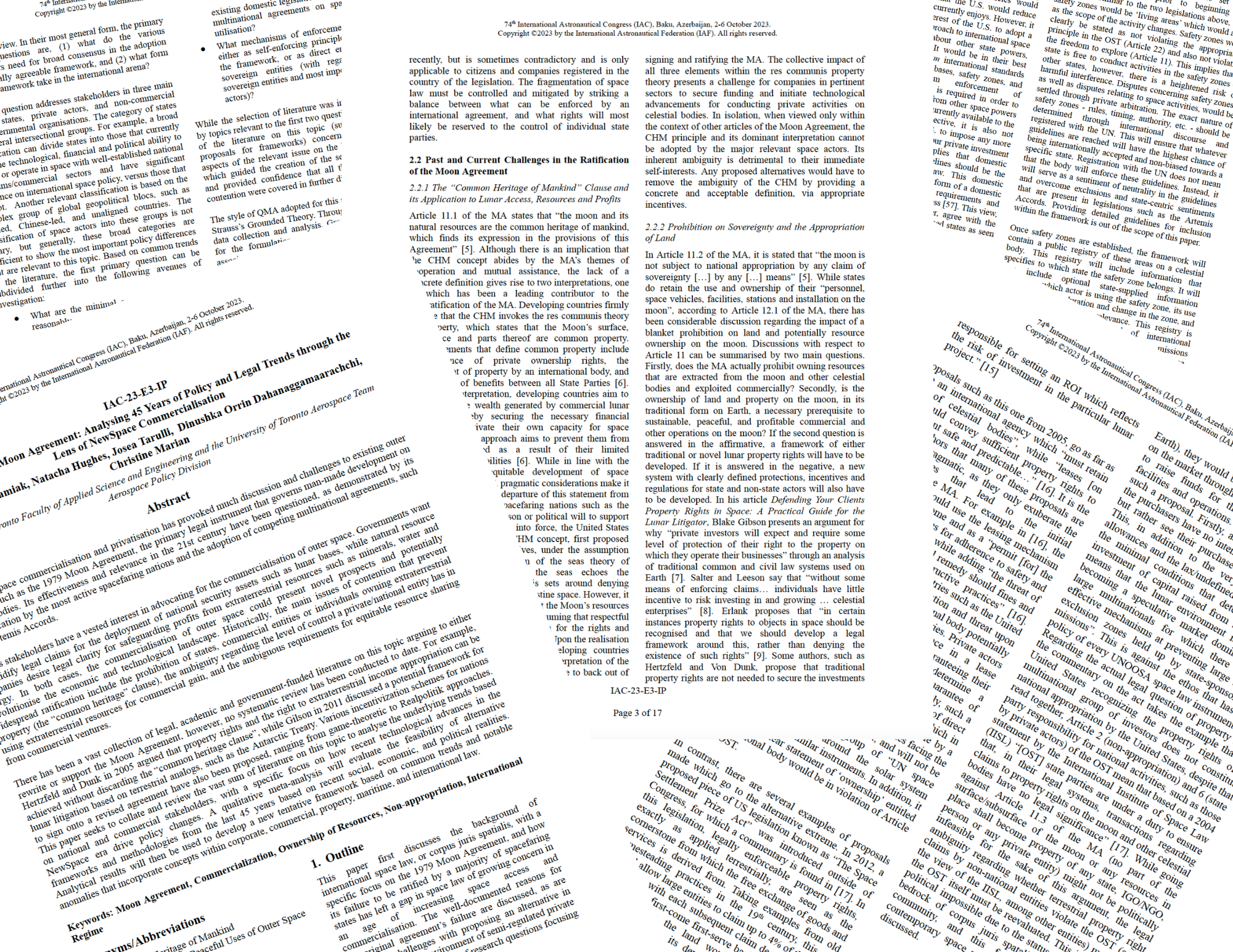






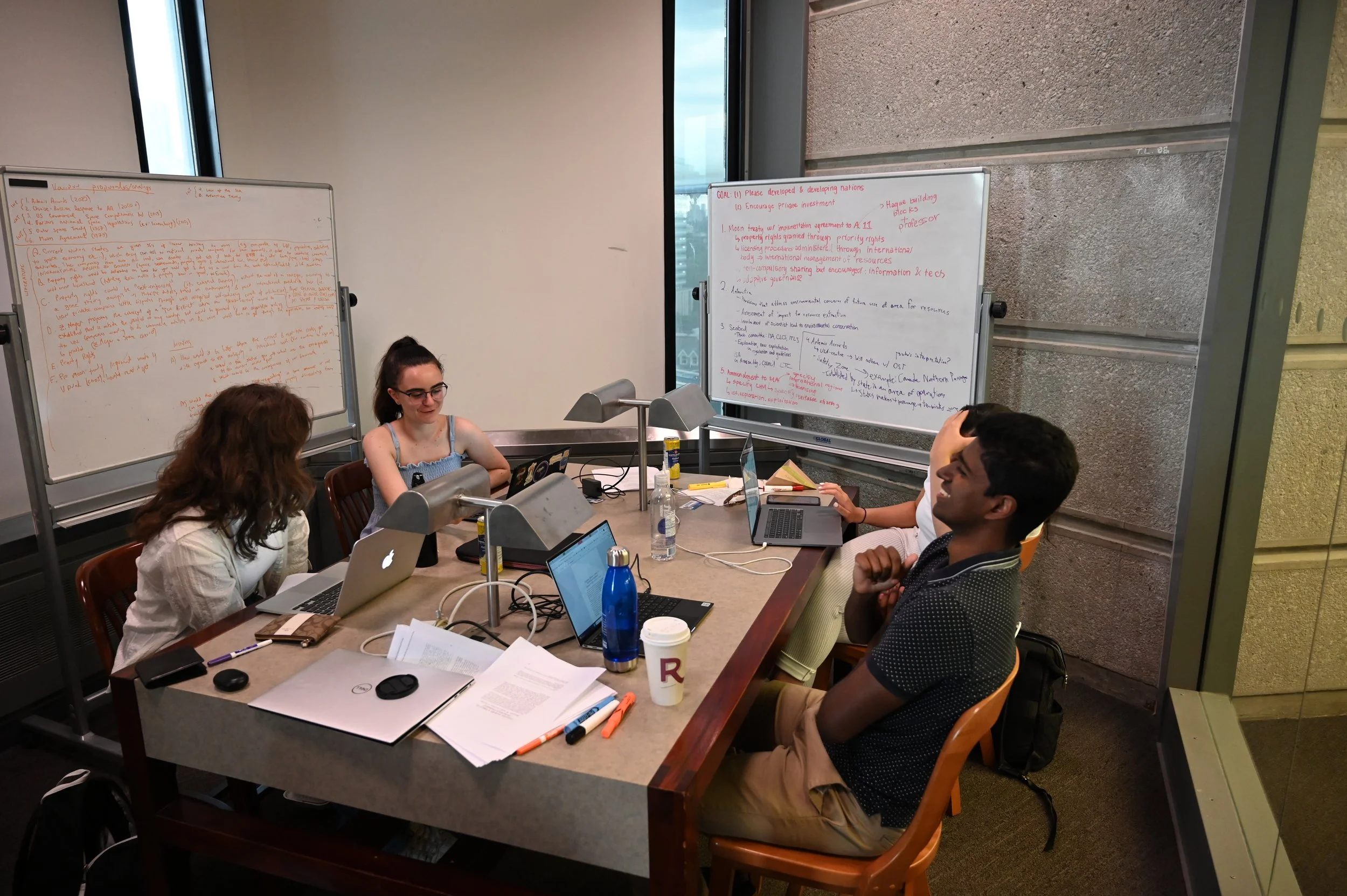


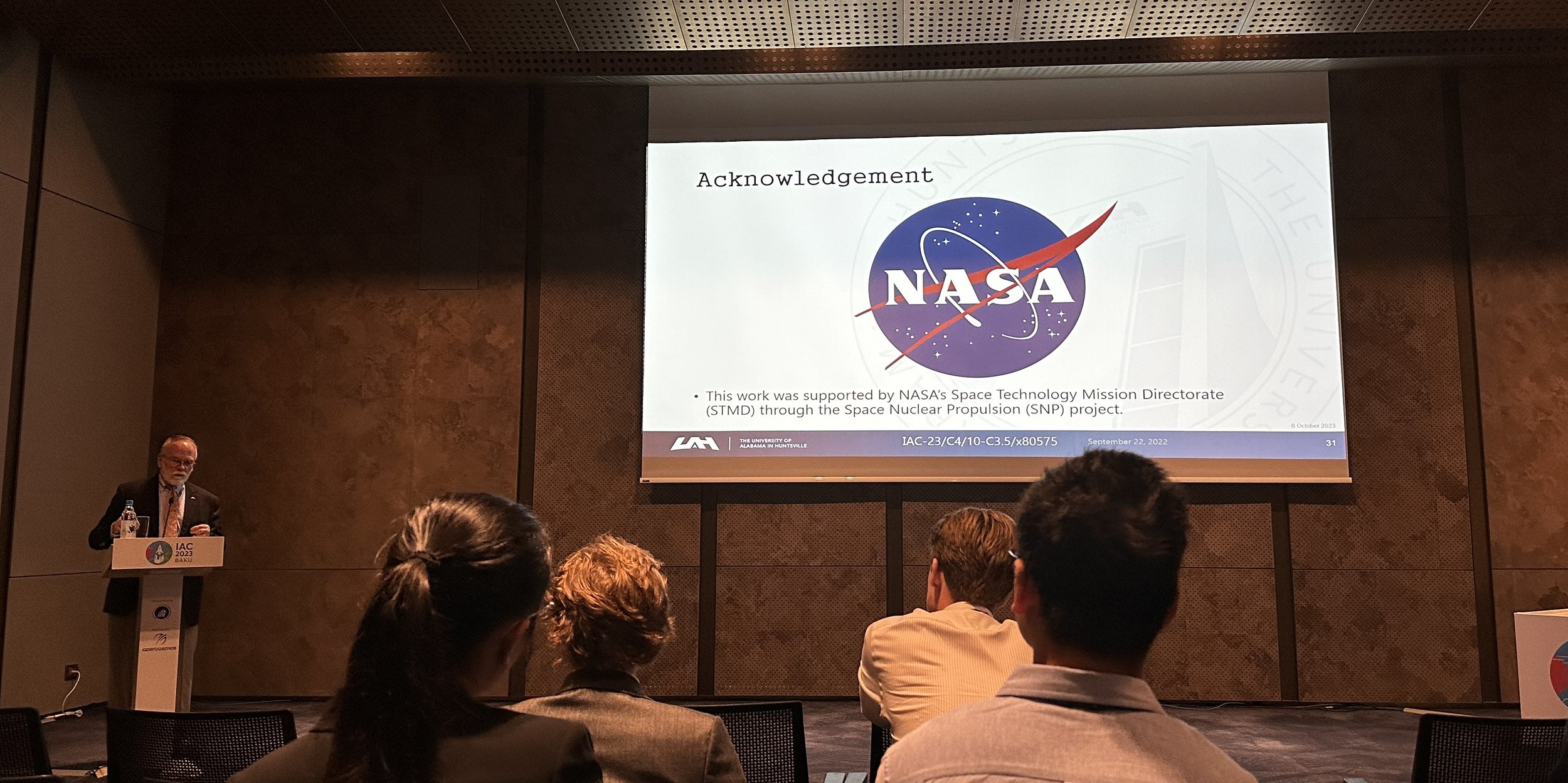



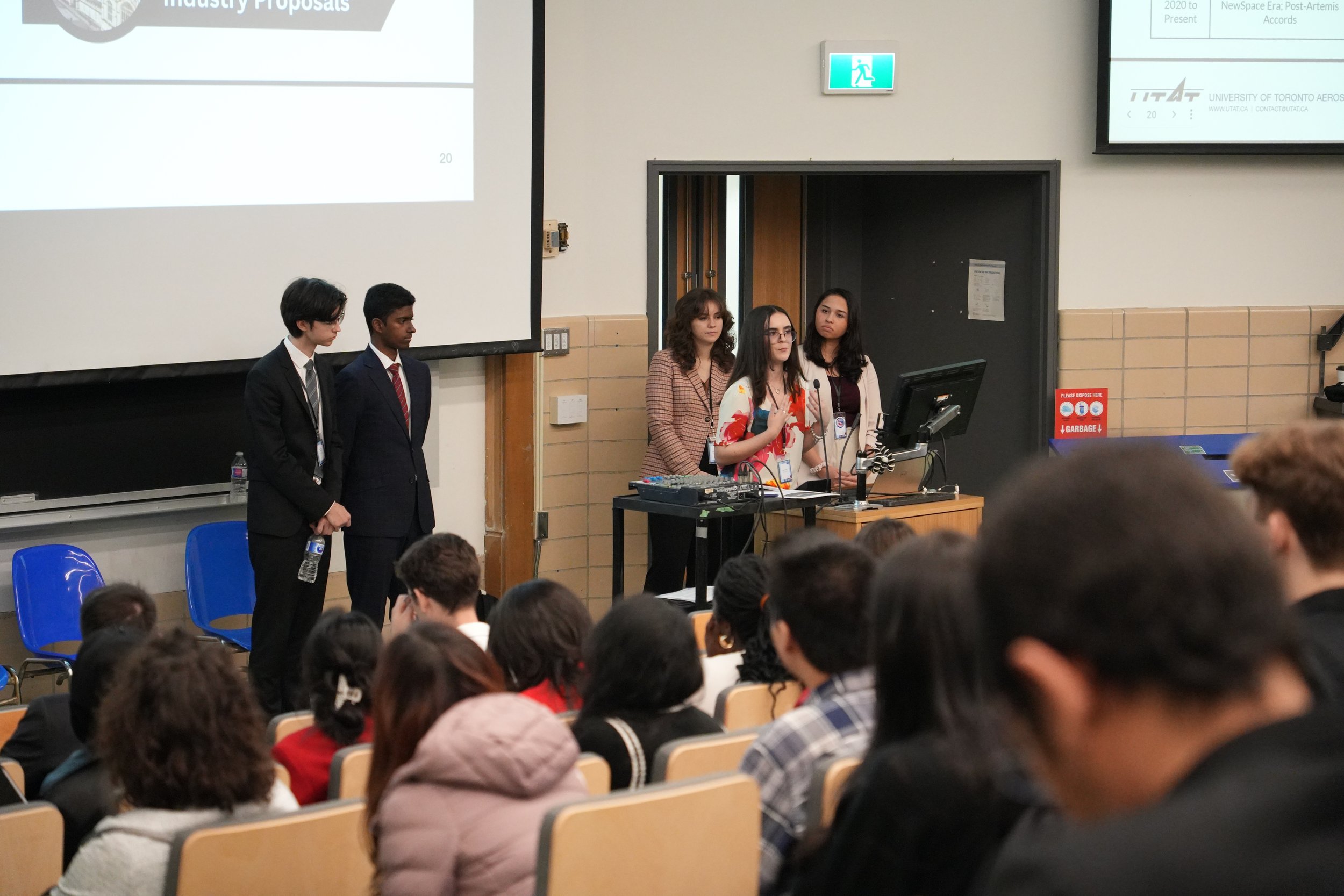
2024 AIAA Aviation Forum and Exposition Participation: UAS-Integrated Last-Mile Delivery
A team of eight undergraduate students conducted an interdisciplinary research project on the energy consumption of Unmanned Aerial Systems (UAS) in heterogeneous last-mile delivery systems. The primary goal was to assess the environmental impact of drone-based operations, promoting sustainable business practices and advocating for policy development.
The project used a mixed-method approach, combining a literature review of current UAS regulations with a technical simulation that calculated the energy consumption of truck-drone delivery systems under various policy scenarios.
Their research manuscript was accepted and presented at the 2024 AIAA Aviation Forum and Exposition, which took place in Las Vegas from July 29th to August 2nd. In addition, the team also shared their research findings with attendees of the Toronto Region Board of Trade Urban Mobility and Manufacturing Technology Conference on October 30th, 2023. The team was glad to have the support of Professor Peter Grant from UTIAS as a full-time advisor.
Research Areas








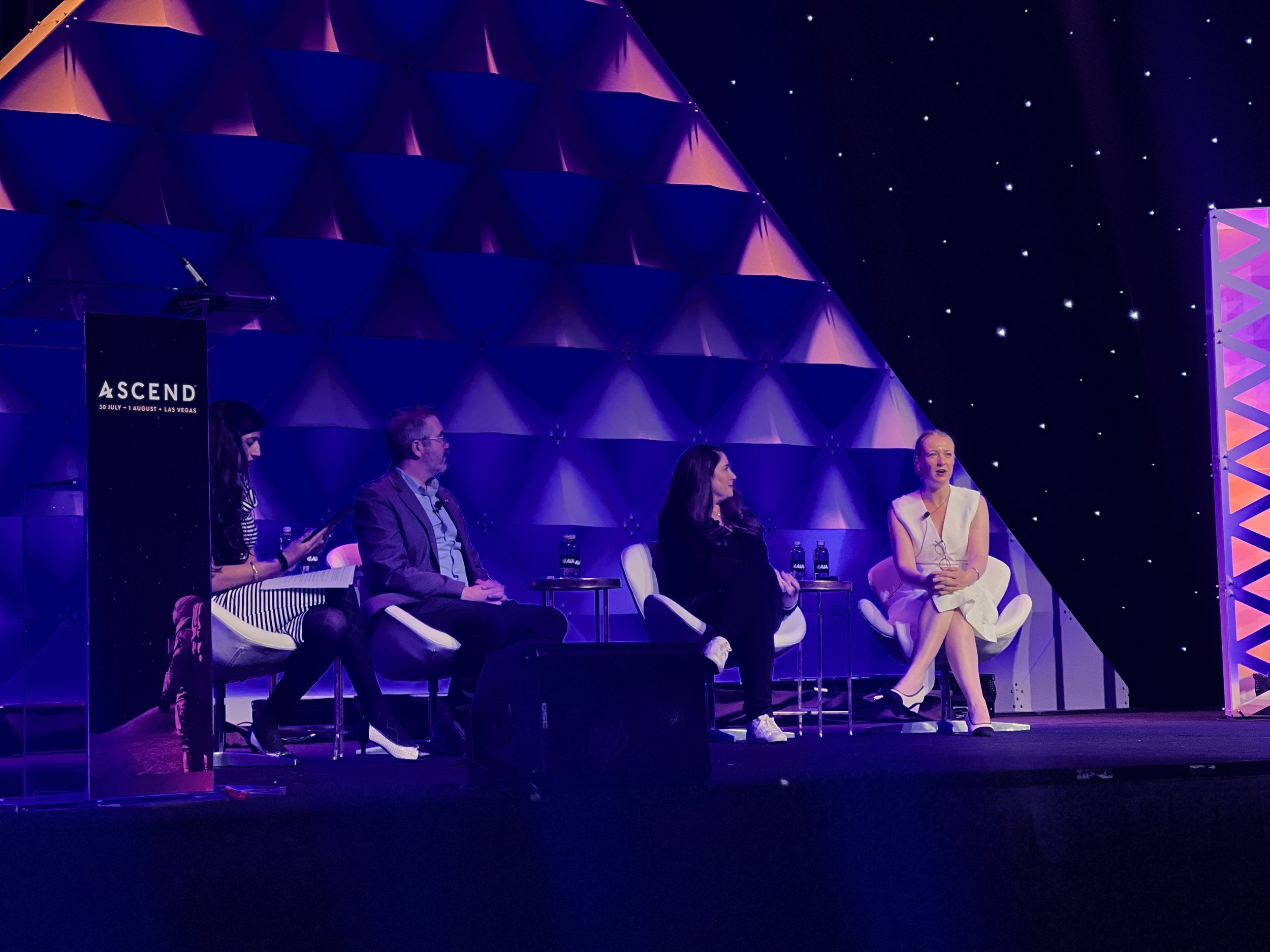

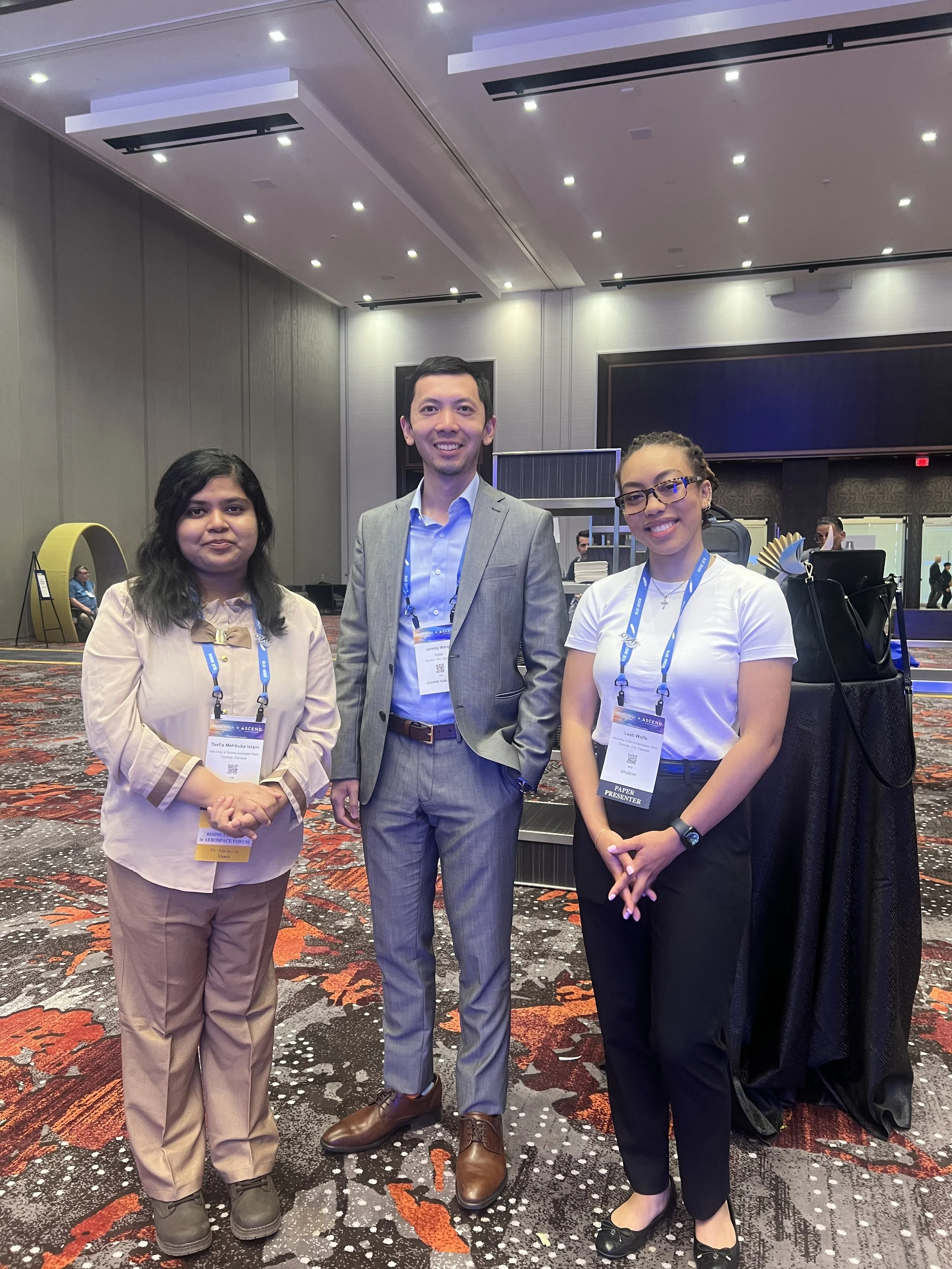

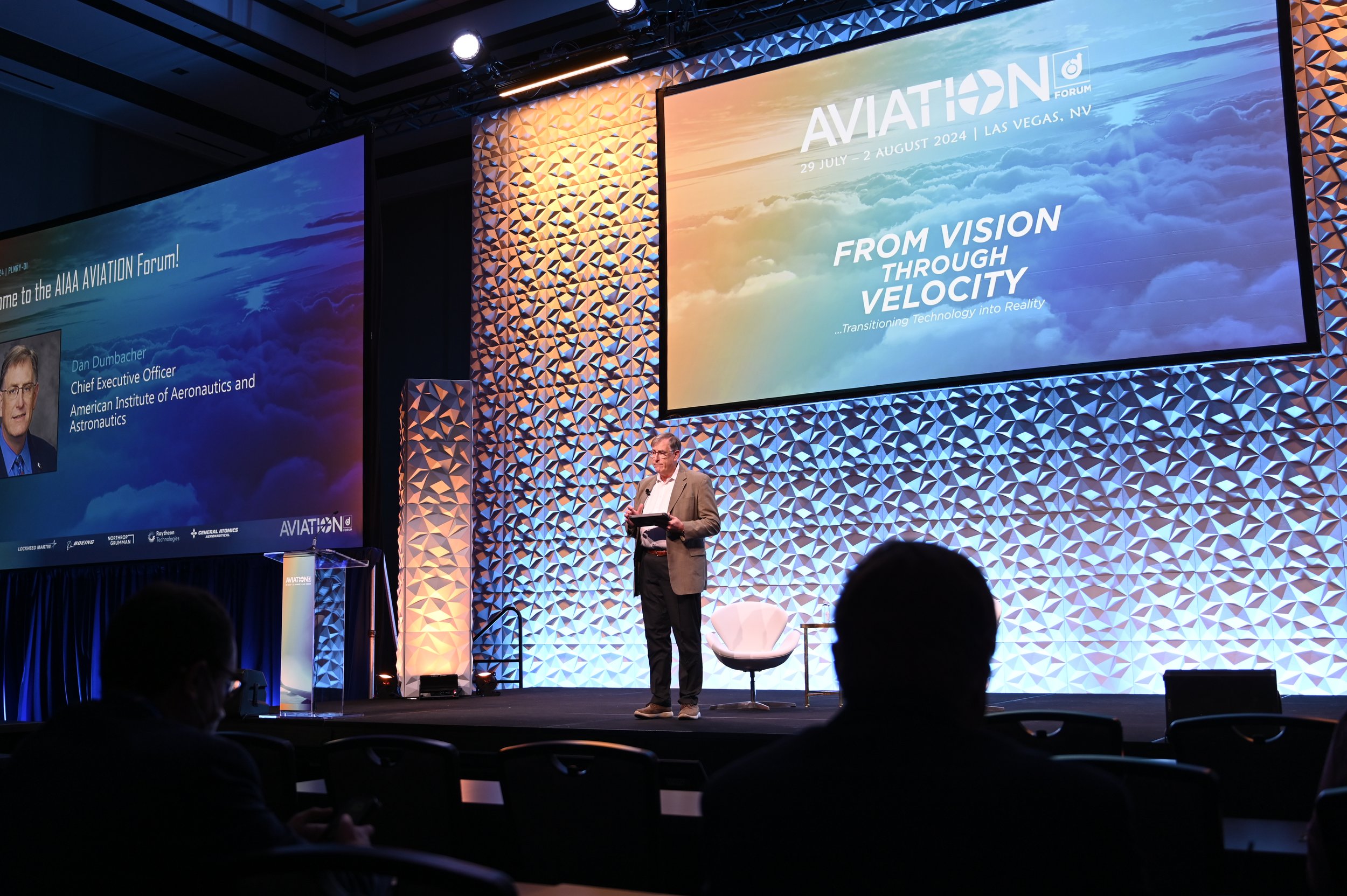



IAC 2024 Participation: Assessing the Sustainability of Artificial Intelligence Deployed in Outer Space
As a multidisciplinary team of 6 undergraduate students, our research project focuses on the development of a comprehensive framework for evaluating the safety, reliability, and sustainability of AI systems that are deployed in outer space. The research paper will be submitted to the 75th International Astronautical Congress, which is set to occur in Milan, Italy from October 14 to 18, 2024. The team is grateful for the support of a varied panel of advisors, including Professor Dr. Ishtiaque Ahmed from the Department of Computer Science at the University of Toronto in Canada, Professor Karina Vold from the Department of Philosophy at the University of Toronto in Canada, and PhD Candidate Thomas Graham from Swinburne University of Technology in Australia.
The value-adds of our research to the existing body of literature include consolidating both descriptive (papers discussing past initiatives) and prescriptive (papers discussing future initiatives) knowledge and addressing the absence of a standardized framework and index for measuring the safety and reliability of AI systems. Without such a framework, stakeholders, including space agencies, private companies, and regulatory bodies, lack consistent guidelines and metrics to assess the performance and trustworthiness of AI systems in space applications. Consequently, the following research inquiries were formulated to tackle the evident deficiency in international space law concerning AI systems:
What factors influence the success of the training and development of AI models?
What regulatory criteria are used to train/develop AI models?
What ethical principles are or ought to be considered for the creation and use of AI models in outer space?
Research Areas
IAC 2024 Participation: SGAC LUNEX PROSPER Research Collaboration
The Space Generation Advisory Council's (SGAC) Space Exploration Project Group is spearheading a research initiative known as LUNEX Prosper. This project's core objective is to conceptualize and articulate the framework of a sustainable lunar economy after decades of human presence on the Moon. It aims to delve into inventive concepts and methodologies for establishing and fostering an economic ecosystem beyond Earth. UTAT’s Aerospace Policy Division has been extended an invitation to collaborate on this endeavour. Consequently, five members from UTAT Aerospace Policy have been chosen to actively participate in this venture, significantly contributing to the Legal Framework and Policy Development Team of the project.
Through extensive research and collaborative efforts, the team intends to construct recommendations, representing the perspective of the younger generation, that endorse the inception and enduring viability of a lunar economy for the Luxembourg Space Agency (LSA). While the LSA is keen on understanding the viewpoints of the younger demographic, they are also interested in exploring novel ideas and objectives that could sustain public interest and financial support for space exploration after humans return to the Moon as part of the Artemis missions. Some new ventures, such as nuclear power and propulsion in outer space, hold promise but necessitate robust policy frameworks to garner support - emphasizing the pivotal role of our work and the significance of innovative policymaking in driving technological advancement.
The project's deliverables encompass a recommendations report to the LSA and a research paper slated for presentation at the 75th International Astronautical Congress.
Research Areas
Past Activities
UTAT Space Review Magazine
UTAT Space Review was a student-run and expert-reviewed magazine published three times a year. Our mission was: to raise awareness of the latest developments and policy issues in the space world, spark discussions on the societal impact of space exploration, and stimulate interest in the final frontier through informative journalism. Our inaugural journal issue came out in Aug 2021 and featured articles on topics ranging from space debris to property rights in space.
IAC 2021 Participation: Mitigating Space Debris through Risk Assessment Frameworks
As society’s interest in global broadband internet and rocket launches increases, enforcing space debris removal will become imperative for space activity to remain sustainable. However, as of 2015, only 60% of the total payload mass nearing end-of-life in low Earth orbit is compliant with these guidelines; without enforced guidelines, these numbers continue to decline. A team of five undergraduate students from the University of Toronto examined this matter from legal, technical, and economic angles, presenting their research findings at the 2021 International Astronautical Congress (IAC) in Dubai, United Arab Emirates.
Their research paper first reviews the state-of-the-art in active debris removal (ADR) and mitigation methods, as they currently exist and are proposed for the future, before reviewing the technical, legal and political, and economic barriers to the creation of a space debris monitoring and removal market. These issues are then addressed through the establishment of an international regulatory body centred on a risk assessment framework that this proposal refers to as a risk rating system as well as a revised legal framework that combats deficiencies in the current space legal regime.
Research Areas
2022 AIAA SciTech Forum Participation: Conflict Mitigation Strategies for Long-Duration Space Exploration Missions
A team of ten inquisitive undergraduate students in UTAT Aerospace Policy presented research on conflict mitigation strategies developed for crews on long-duration space exploration missions at the 2022 AIAA SciTech Forum hosted in San Diego. This is the world’s largest event for aerospace research, development, and technology. The project, with members taking on the roles and responsibilities of sub-investigators, outreach officers, and data coordinators, majorly consisted of a thorough literature review and the execution of a qualitative meta-analysis and Delphi study. Through the Delphi study, members collaborated with faculty from the University of Toronto with specific expertise in psychology, conflict management, engineering leadership and teamwork, and communication. Our final manuscript and video presentation, “Extrapolation of Conflict Mitigation Strategies from Teams in Isolated Communities on Earth to Long Duration Space Exploration Missions”, can be accessed through the following DOI link.
Research Areas







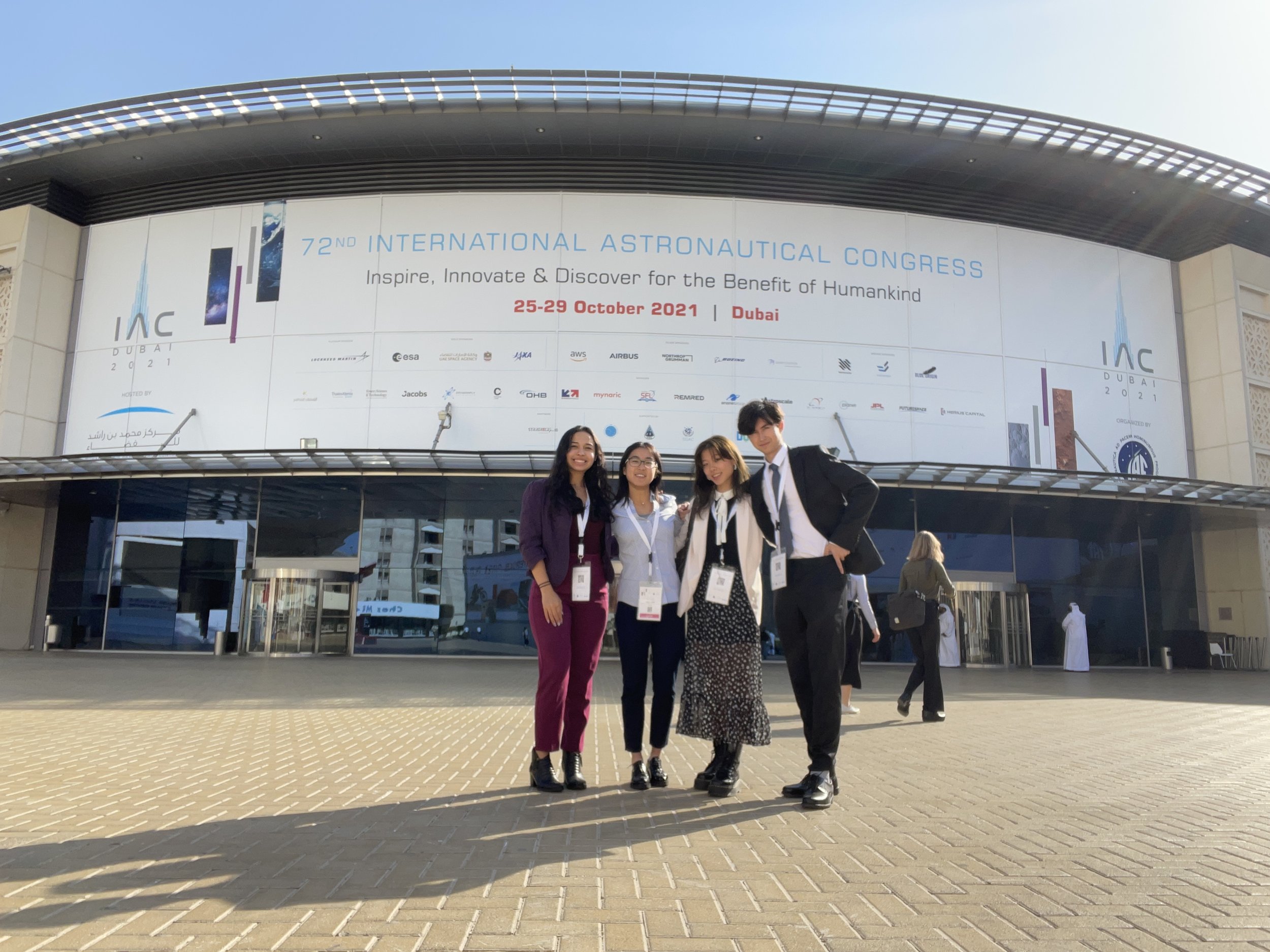




COSPAR 2022 Participation: Economic Resilience in National Space Economies
How do we evaluate the socio-economic benefits of space exploration to life on Earth? For us space enthusiasts, the fact that “space is cool” is all the motivation we need to strive for an increase in our presence beyond Earth, but policymakers require extensive and concrete data to make decisions on the funding of space ventures. Our team’s research assesses current trends and practices in evaluating the quantitative impacts of space exploration. In doing so, we aim to create novel criteria that will more accurately guide the management of commercial and national space budgets in a new age of increasing technological advancement and commercialization. Our work was presented at the 44th Committee on Space Research (COSPAR) conference in Athens, Greece!
Research Areas




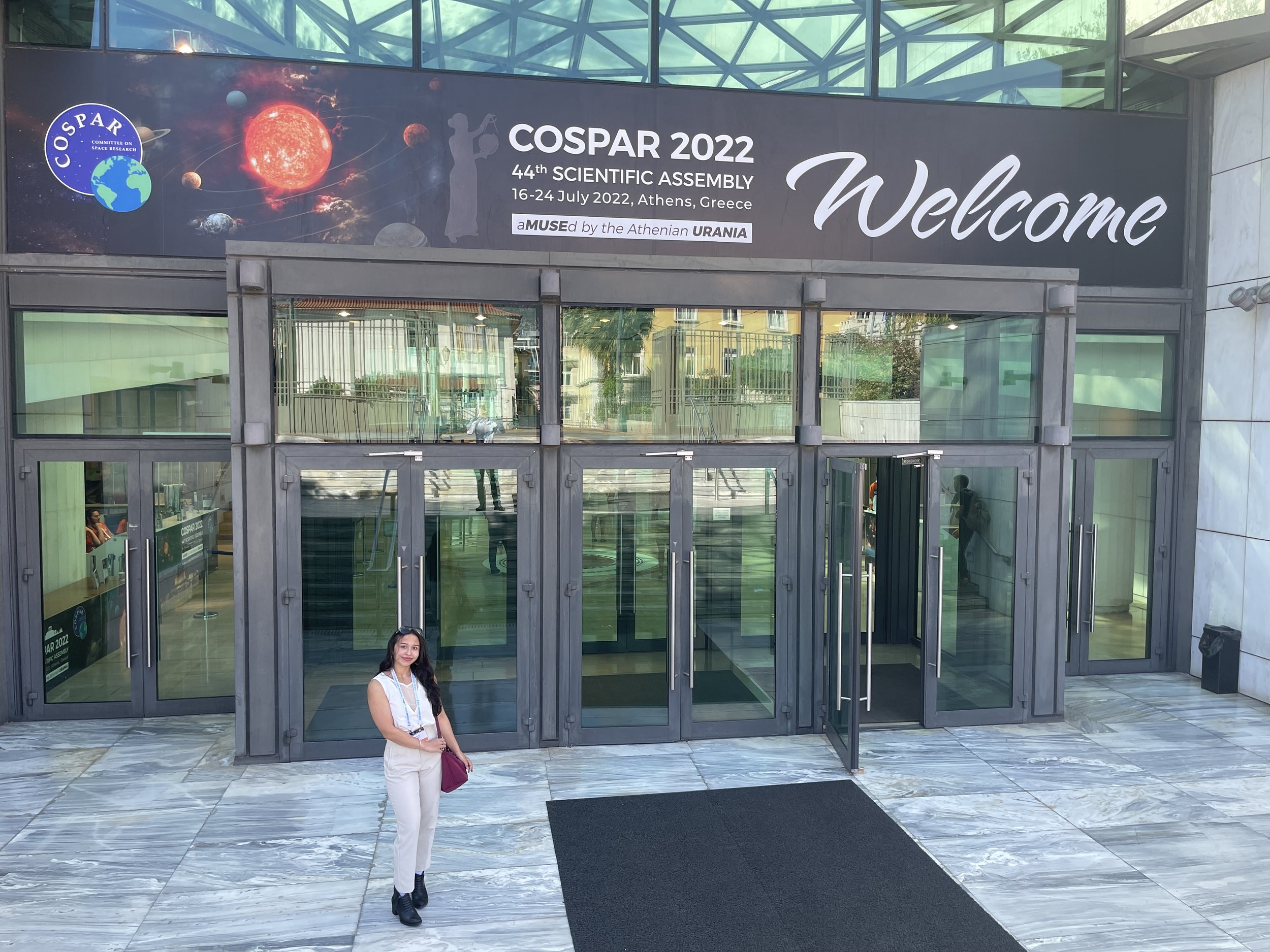



EUCASS 2022 Participation: Operations and Systems Modeling of a Sustainable Lunar Settlement Using ISRU Technologies
The future of deep space exploration lies in in-situ resource utilization (ISRU). As humanity strives to become a multi-planet species, there is a compelling economic case for procuring resources like propellants, oxygen, and water in the local space environment. By reducing launch payloads and eliminating the need for expensive resupply missions from Earth, ISRU will facilitate extended human activity in space. However, many open questions remain regarding the integration of ISRU technologies in human settlements, including strategies for waste and risk management. This research gap was addressed by a team of five students from UTAT Aerospace Policy, and their research was presented at the 9th European Conference for Aeronautics and Space Sciences (EUCASS) in Lile, France!
Research Areas
Team Leadership
-
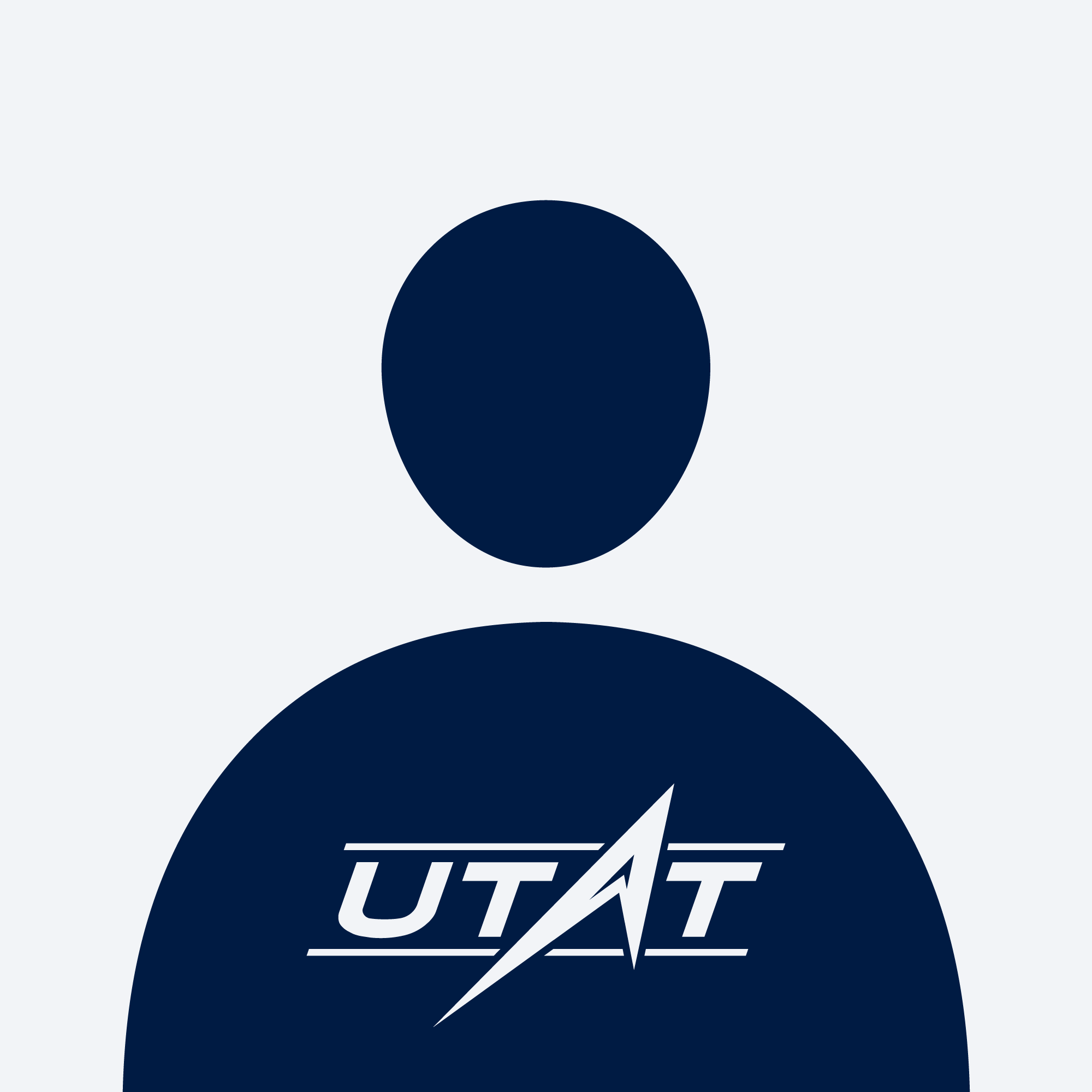
Parneet Saini
Director of Aerospace Policy
-

Dominik Adamiak
IAC 2023 Team Co-Lead
-

Noa Prosser
LEAP Program Co-Lead
-

Ayush Roy
LEAP Program Co-Lead
-
Jillian Unruh
Podcast Lead
-
Carrie He
2024 AIAA Aviation Forum Team Lead
-

Hargun Kaur
IAC 2024 Team Lead
Aerospace Policy Portfolios
-
Carrie He
Brand & Media Lead
-

Maheen Mufti
Organizational Development Lead
-

Elizabeth Xu
Business Development Lead



















